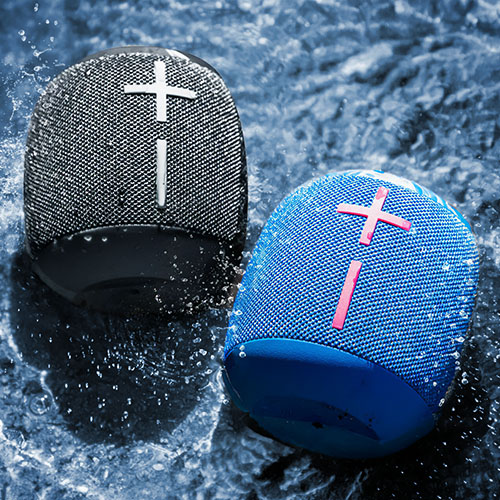“Do you want to be right, or do you want to be happy?” happens to be a well-known phrase in psychology.
Is Technology Ruining Sports?
For some, the pursuit of perfectionism comes with a need to exert control and an inability to let things go. They may be correct, but it comes across as hairsplitting pettiness. Many English soccer fans would describe the VAR (Video Assistant Referee) as an annoying control freak.
In soccer, a few terrible decisions over the years — or great ones, depending on who you support — have caused huge controversy. The recently deceased Diego Maradona’s Hand of God is arguably the biggest. Frank Lampard’s disallowed goal for England at the 2010 South Africa World Cup is another doozy. Truth is there have been some shocking decisions over the years — but not that many.
And surely not enough to have led to the stop-start culture currently pervading the Premier League? Stilted celebrations and strange decisions — where a last-minute winner leads to an ecstatic reaction on hold, while an accurate decision is made.
The greatest moments in soccer have been those moments — sheer, unbridled, Oh-my-God-ness as the ball hits the back of the net. Imagine Manchester United’s comeback celebrations in the 1999 Champions League Final being paused while they checked the monitor in the last minute. In fact, twice in the last two minutes.
Ruining those moments is surely worse than getting a few decisions wrong?
Belgian soccer star Kevin De Bruyne is arguably the greatest footballer in the world after the Messi/Ronaldo double act. He recently said: “I don’t know the rules anymore, honestly. I’ve been playing professional football for 12 years, and in the first nine years there were no rule changes. Now, there are a lot of rule changes. I don’t know why. Football is a nice game. The people making the rule changes need to be in the game.”
Ex-Spurs boss Mauricio Pochettino went further, saying, “I am for technology, but be careful not to change the game and kill the emotion. My worry is we are talking about a machine and not football.”
Bizarrely, the really big decisions that sparked the technological revolution of football are quickly solved. Goal-line technology is pretty seamless; the referee instantly gets a bleep on his phone to say whether the ball has crossed the line and can make a decision. Liverpool’s experienced midfielder James Milner is a fan: “Goal-line technology is incredible. Instant decision. Black and white.”
But he’s not a fan of VAR.
“It’s very hard to use VAR when you’ve still got opinions on the decisions and the atmosphere in football is being ruined,” Milner says.
Especially when the resulting decisions seem worse than the referee’s original. Patrick Bamford’s goal, which was disallowed for Leeds against Crystal Palace, was described by Former Premier League star-turned-pundit Robbie Savage as “the worst decision I’ve ever seen in the history of football.”
Bamford’s hand was judged offside — his fingers deemed ahead of the defender as he pointed where he wanted the ball.
Do you want to be right, or do you want to be happy?
Is Phil Gould happy with the bunker in Australia’s National Rugby League (NRL)?
“They’d check everything if they could. They would check every single play,” he recently said. “The referees’ dream is to play the game on Sunday, finish the game at six o’clock, pack everything up and say ‘we’ll give you the result on Tuesday.’”
The KFC bunker was introduced at a cost of $2 million to “provide NRL review officials with world-class technology and enable them to deliver more accurate, efficient, consistent and transparent decisions.”
In Gould’s words: “They don’t have a clue.”
The NRL bunker has been in operation for four years. In America, the NFL has had instant replay reviews since 1986 — some 34 years — and they’re still trying to get it right. The NFL can review up to 15 different circumstances using instant replay. VAR in England only reviews four.
There’s the rub: The rule was introduced after a big and specific decision that altered a whole season for the New Orleans Saints. A huge mistake, but essentially a one-off.
In cricket, meanwhile, they love technology. Hot Spot, the Snickometer and Hawk-Eye have arguably added to the enjoyment of the game, not detracted from it. But then it’s ultimately a slower paced game; you watch for seven hours in the sun with a beer and a pie, studying the game in a leisurely, almost scientific way. The players stop for tea breaks, for God’s sake. Hot Spot and Hawk-Eye notch the drama up, rather than take it down.
Tennis is similar. Hawk-Eye’s been around for line calls and player challenges since 2004 after some shocking calls against Serena Williams in a U.S. Open quarterfinals clash she lost to Jennifer Capriati. The United States Tennis Association actually called Williams after the match to apologize. Again, tennis is slower and compartmentalized — technology acts seamlessly with the game and builds tension, rather than sucking out the emotion.
With VAR, Maradona’s Hand of God goal against England at the 1986 World Cup wouldn’t have stood. If that had been the case, the Argentine athlete might not have scored the Goal of the Century four minutes later. He might not have gone on to lift the World Cup that year. How the referee didn’t see him punch the ball in the net still amazes. But he didn’t. And we’ve all learned to live with it.
That moment has become legendary because the decision was bad and wasn’t overturned.
If not sport as a whole, VAR is certainly sucking the life out of football games. Maybe the next evolution will be to re-referee past games using technology and reverse the results based on correct decision-making? Maradona would turn in his grave.
But do you want to be right, or do you want to be happy?
Granted there might be a few reading this mentally voicing the argument, that Rob here more accurately speaks about “soccer” while “football” more accurately describes a purely American sport. Hey, they do call it the National Football League, after all, so that must settle the argument, right? Of course this narrow argument sort of just ignores the 3.5 billion “soccer” fans worldwide in favor of the 400 million NFL fans on the globe, but this hardly qualifies as the first time American policy rationale comes down to a “because we said so” argument. So we’ll just skip over that and point you to a thorough, albeit self-serving, analysis of Instant Replay for all those people in the VAR countries to read should they choose. Fair warning: It will say “football” a lot on those pages. They keep using that word. We do not think it means what they think it means.






















